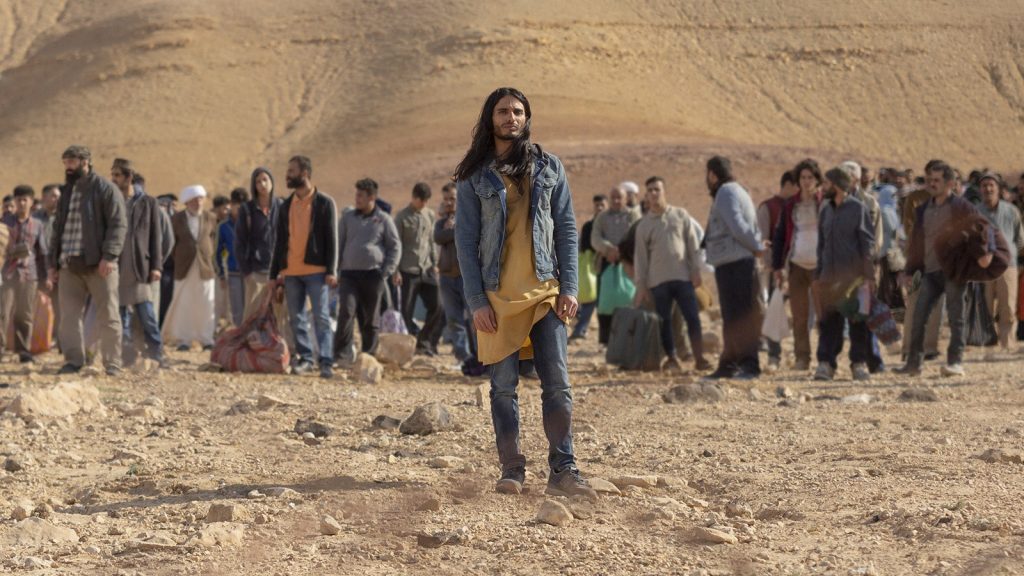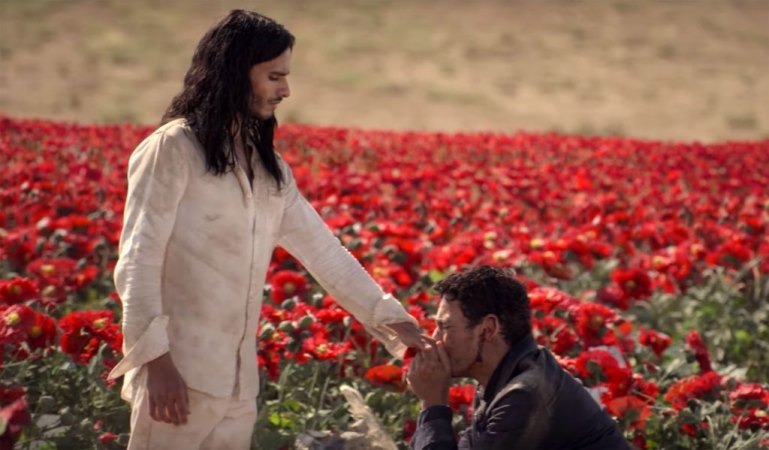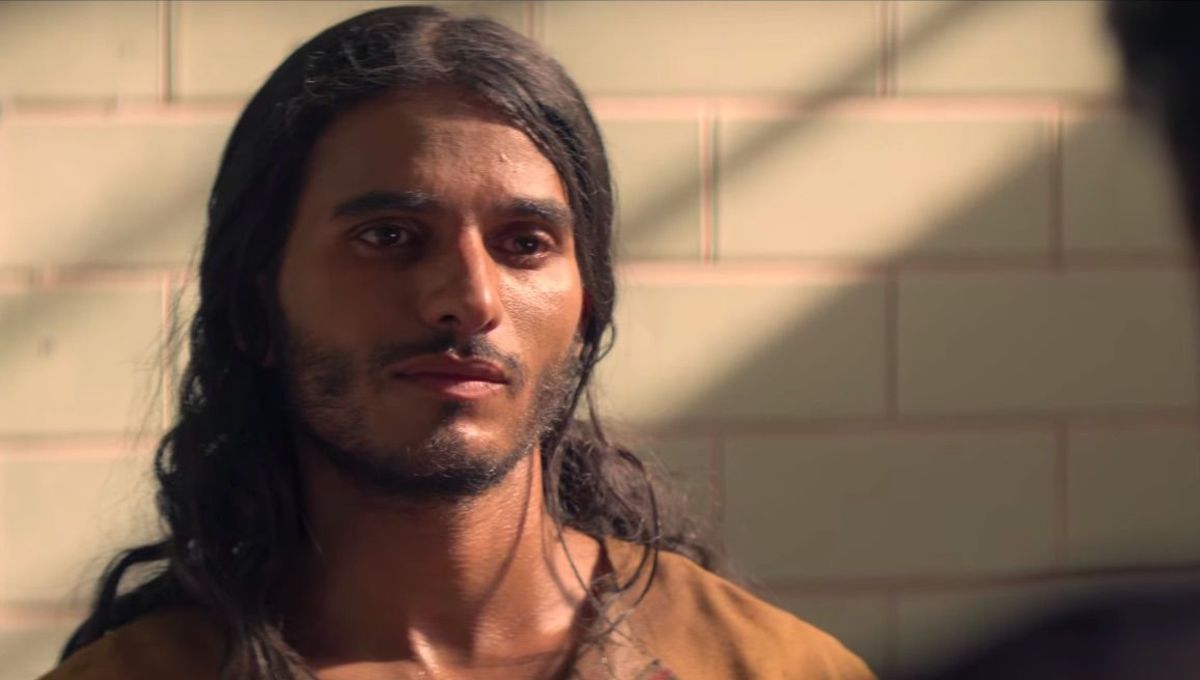“To see is to believe,” they say. But isn’t there more to truth than just that? Netflix, through its latest geopolitical suspense thriller, not only crosses cultural boundaries, but the boundaries of the genre itself, and brings to us something thought-provoking that keeps us on our toes as we try to figure out the truth, if there is one.
Netflix’s ‘Messiah‘ explores the need of people to believe in something, at a time when they cannot trust anything. The show, then, not only makes us question these beliefs but, more importantly, why one chooses to believe by weaving together multi-layered narratives from across borders and faith. This is precisely what makes the series both refreshing and reflective of our troubled times, as it builds a compelling narrative filled with several distinct voices. It is also how ‘Messiah’ manages to become an unusually gripping suspense thriller, one that neither requires a solid villain nor violence but instead makes use of the power of an idea and how destructive that can be.
Summary of the Plot
‘Messiah’ begins with Jibril and Samir, two young Palestinians in Damascus, stuck during the resurgence of ISIL. This is where we’re first introduced to the man hailed as “Al Massih,” who claims to be the messenger of God and promises peace to the people. He quickly wins over several of them as ISIL withdraws its troops. He then takes his 2000 followers with him (the two boys included) through the Syrian desert without food and water, all the way to the Israeli border.
This captures the attention of CIA agent, Eva Geller, who sets out to track the man down. As the series progresses, several more narratives become entangled to the man’s as he crosses borders and goes from the Middle East, all the way to America. These include the Shin Bet agent, Aviram, the Latino Reverend from Texas, Felix, his wife, Anna and daughter, Rebecca, and journalist, Miriam Kenealy.
From Islam to Christianity, from Syria to Washington DC, the man continues to perform miracles and quote the words of God, winning thousands of followers from across the country and across borders. But Geller is more determined than ever to find out who the man is and what his intentions are. She teams up with FBI agent, Mathers, and learns about Al Massih’s real identity and past.
People grow divided and chaos is unleashed all around, as there are some who see goodness and virtue in the man, while others consider him fraud. Whether or not he is one, is upto you to decide. But as the series progresses, things take a dark turn, forcing people to pay the price of their choices.
Al Massih: The Miracle Man

Al Massih is obviously not his real name. But it is the name people choose for him as they believe him to be the Messiah. He first shows up in Damascus wearing yellow robes and preaches to the crowd, consoling them and promising them peace. This becomes interesting as the Quran is of the belief that Christ will return in the east of Damascus, wearing yellow robes. He is followed by masses from Damascus to the Israeli border, where he gets arrested. He then somehow manages to disappear from his cell and shows up at the sacred Temple Mount in Jerusalem, where he ends up resurrecting a boy.
Al Massih is then sighted in Dilley, Texas, where he saves Rebecca from a tornado that destroys all of Dilley. All except Felix’s church. Felix believes this is a sign, and that the Messiah chose him. Due to the media coverage of the events, people from all over the country begin to come to Texas to meet him and seek his blessings, including those who are suffering. Massih later leaves for Washington DC as his people follow him. He then preaches about the judgment day and continues to publicly walk on water, leaving people in awe and overwhelmed while catching the attention of the Vatican and the President of the U.S.A.
Cultural Terrorism
As Geller investigates Al Massih’s identity, she comes across information that shocks her. She learns that the man’s real name is Payam Golshiri and that he is from Iran. She also learns that he spent a semester studying Political Science in William College, Massachusetts, where he was taught by the radicalist, Oscar Wallace. This gains a lot more relevance as Mathers, who recorded Massih’s conversation with Geller, points out that he directly quoted from Wallace’s book, Cultural Terrorism. Wallace is considered to be involved in terrorist activities and is in hiding in Russia.
Wallace’s Cultural Terrorism works on the principle of causing confusion and chaos, in order to get people to question things, eventually leading to widespread social disruption. This gives Geller the reason to believe that Wallace somehow recruited Massih, and is using him to cause social disruption everywhere. She speaks of how terrorism continues to evolve. Al Massih, instead of using violence, walks on water, making use of the power of an idea.
This does leads to looting and vandalism all over DC, while the same happens across borders in the Middle East. But things grow a lot more darker as Geller learns that Payam Golshiri was in fact behind Cultural Terrorism. Those were his ideas, and Wallace only gave it his name to serve Golshiri’s cause. Wallace even goes on to say that between the two of them, he was a less dangerous one, revealing Al Massih, or Golshiri, might actually be up to something terrible.
In many ways, this explains most of Massih’s actions, from leaving thousands of innocents without food and water at Israel’s border to the camps in Dilley; the way he makes use of social media and viral videos performs “parlor tricks”, as Avi says. This eventually gets people to question and makes people more divided. Though not directly, it also indirectly leads to the tragically horrifying bomb blast at the mosque that kills many, including Samir, and possibly Qamar.
The Hoax of the Millennium
In an attempt to get rid of Al Massih because he begins to influence the President, Collier, The President’s Secretary, strikes a deal with the CIA chief and Shin Bet. He gets Massih abducted from the show as Avi and his men take him back to Israel in a diplomatic jet. He also shares all confidential files on Massih that Geller was working on with the journalist Miriam Kenealy. She tells a story of Massih’s real identity as everyone’s life begins to fall apart.
Kenealy’s story reveals all that we already know from Geller, but now the people who blindly followed him learn about it, too. Al Massih is really Payam Golshiri, who was brought up by his uncle a magician who taught him everything he knew. This adds layers to the miracles he performs, as they could be considered mere illusions. It is also revealed that he spent seven months at a psychiatric hospital as he was said to be suffering from the Messiah Complex/Delusional Disorder.
The Ending

Messiah’s finale is in many ways aptly titled “The Wages of Sin”, as the Bible says that “The wages of sin is death”. And in the series final chapter, death rules everyone, as not only do people die, but so does their innocence, their faith, their belief. Jibril sees the news from the hospital surrounded by bodies that are either dead or nearly dead. While, Staci loses her daughter to cancer because of the choice she made to follow Al Massih instead of continuing her daughter’s treatment. Felix, bitter and disillusioned, ends up actually burning his church.
But as always, ‘Messiah’ offers a twist with its ending because the plane carrying Al Massih suddenly blows up. It then crashes on a field of red flowers. Avi wakes up looks at Al Massih looking down at him. Malik, a local kid, tell him that he was raised from the dead by Massih, and so was another man, while everyone else died. The other man, kneels down and kisses Massih’s hand, as Avi looks in disbelief.
Now, the ending becomes interesting for multiple reasons. Firstly, it was important to establish earlier in the episode that Malik has an active imagination and loves to tell stories. Due to this, it becomes hard for the viewers to completely give into what he says about Al Massih raising Aviram from the dead. But then there is also the fact that Al Massih somehow managed to survive the crash without a scratch, and was seen touching the bodies before they woke up. It becomes all the more complicated when one looks back at Al Massih’s connection with Cultural Terrorism, along with his actual past. The ending then doesn’t really reveal whether or not Al Massih is the Messiah, but it does leave behind plenty of compelling ideas to linger.
There are also several loopholes in the series, including the fact that it does not give Al Massih any real personality, which probably adds to the enigma. Neither does it make sense of Geller’s investigation because though we know why she’s doing it and what’s know, it never materializes or leads to anything. And of course, it raises too many questions, but doesn’t follow up or answer any one of them. This does add to the suspense, as it makes the truth a lot more complicated. But it also can be seen as a bit of a drag.
What makes the finale of ‘Messiah’ so thought-provoking though is that it explores how an idea can destroy masses. It majorly works as a suspense thriller purely based on that one idea, and to be honest, it doesn’t even matter whether or not its real, because the season deals with the consequences of beliefs than it does with finding answers. But as the series reaches it final episode, it is not difficult to see that there is a lot below the surface than what meets the eyes. Let’s hope for a second season to finally answer some questions.
Read More: Where Was Messiah Filmed?


You must be logged in to post a comment.